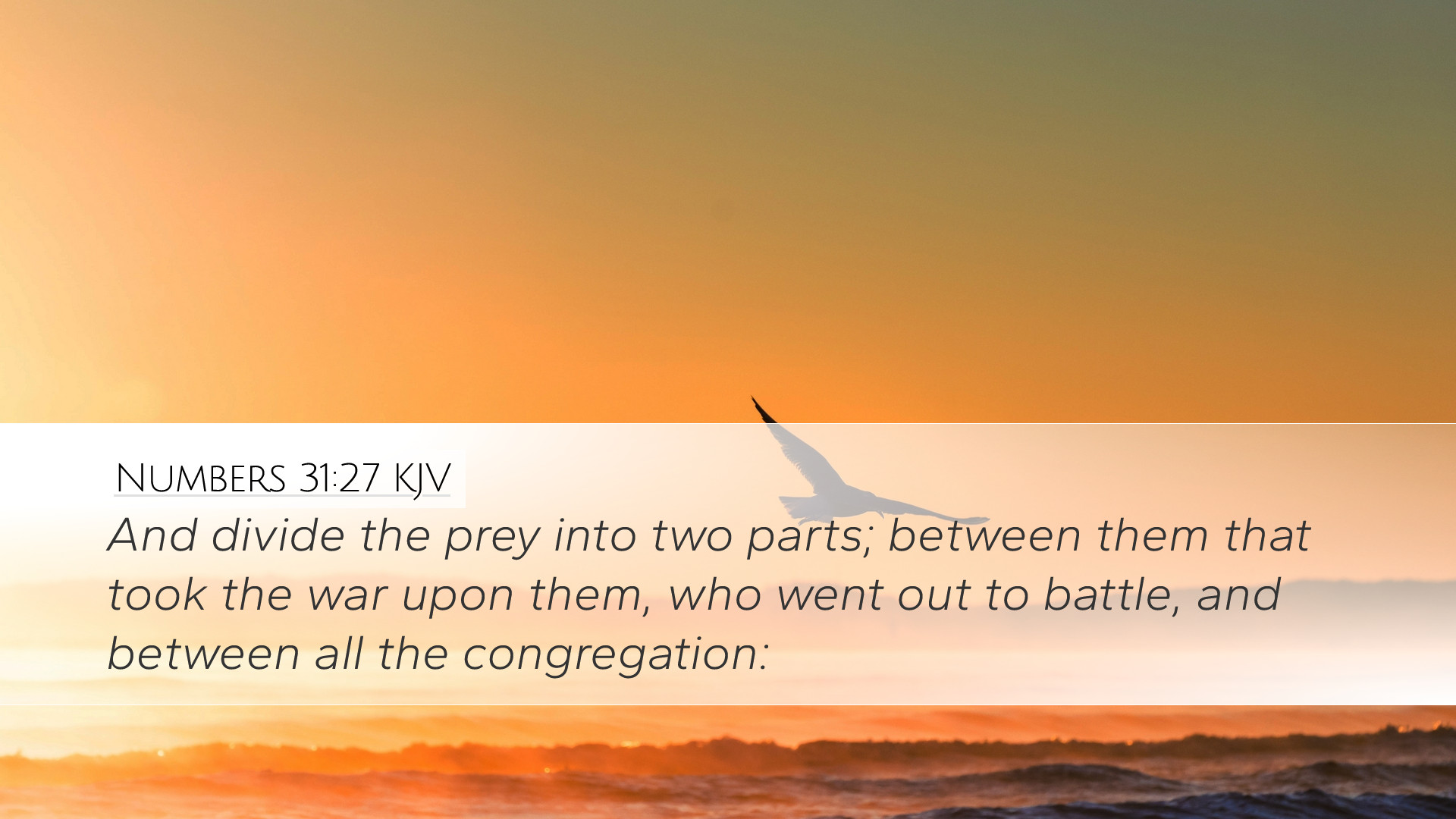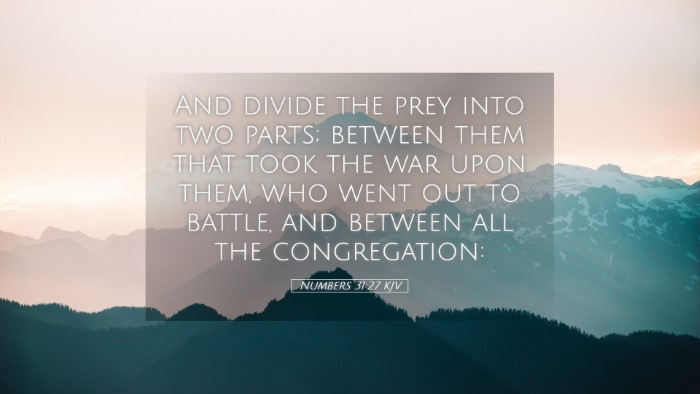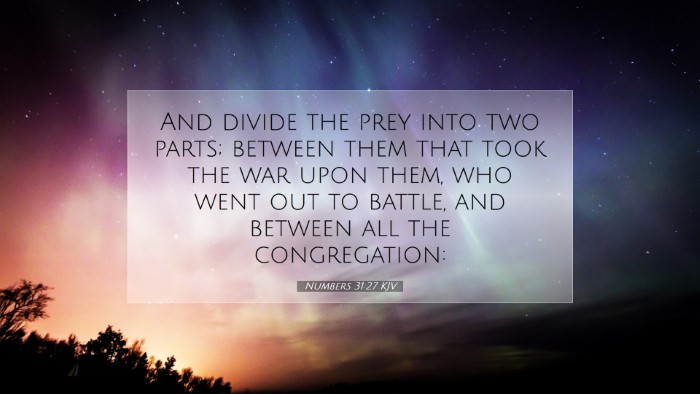Commentary on Numbers 31:27
Numbers 31:27 states: "And divide the prey into two parts; between them that took the war upon them, who went out to battle, and between all the congregation." This verse concludes the account of Israel's war against the Midianites, delineating the distribution of spoils among those who fought and the rest of the community. The significance of this verse encompasses themes of justice, unity, and the recognition of God's providence.
Understanding the Context
The narrative in Numbers 31 takes place after a divine command given to Moses regarding the vengeance against the Midianites, emphasizing God’s judgment against those who seduced Israel into sin. The chosen method of warfare holds theological importance, reflecting both God’s sovereignty and the seriousness of sin's consequences.
Commentary Insights
Matthew Henry's Commentary
Matthew Henry remarks on the equitable division of spoils as a reflection of justice and acknowledgment of the contributions of both warriors and the wider community. He highlights that although the warriors risked their lives, the spoils are shared to maintain unity within the community, emphasizing that every member contributes to the Lord's cause—both in battle and support.
- Shared Responsibility: Henry notes that this division fosters a sense of shared responsibility, treating those who stayed behind with dignity despite not engaging directly in combat.
- Symbol of Unity: The action symbolizes Israel's cohesive identity as a community under God, reminding that victories belong collectively to the entire congregation.
Albert Barnes' Notes
Albert Barnes elaborates on the methodology of dividing the spoils, emphasizing its intention to reflect divine justice and morality. He comments on the necessity of ensuring all had a share, reinforcing that God's people are interdependent.
- Distribution Rationale: Barnes explains that this division was not merely a practical measure but a theologically instructed one, commanding gratitude towards God for success achieved through Him.
- Focus on God’s Will: He suggests that God's will is to remind the community that all resources and victories are divinely orchestrated and should be shared accordingly.
Adam Clarke's Commentary
Adam Clarke reflects on the social implications of the text, highlighting the need for inclusivity and humility in the distribution of rewards. His analysis indicates that the spoils act as a tangible representation of God’s blessing.
- Humility in Victory: Clarke insists that sharing the prize prevents arrogance among the warriors, reminding them that their strength comes from God, not their own might.
- Covenantal Community: He further notes that this act serves to strengthen the covenantal bond within Israel, rooting their identity in mutual support and shared blessings.
Theological Reflections
This passage can be dissected into several key theological themes:
- Divine Justice: The distribution of the spoils serves to illustrate God's justice. Every member of the community, through their roles, plays a part in fulfilling God's purposes.
- Unity and Fellowship: This verse encapsulates the essence of unity in diversity, where different roles and contributions are equally valued.
- Recognition of God’s Provision: The act of dividing the spoils is also an acknowledgment of God’s provision for His people, as every victory is rooted in His power and favor.
Practical Applications
This passage encourages leaders and congregants alike in several practical ways:
- Encouraging Community Support: Just as the spoils were shared among the entire community, so should churches promote shared responsibilities and support for one another.
- Promoting Inclusivity: Emphasizing the importance of including everyone's contributions can lead to a more cohesive and harmonious community.
- Fostering Gratitude: Encouraging congregants to acknowledge their victories as God's gifts leads to a greater sense of gratitude and reliance on His providence.
Conclusion
Numbers 31:27 encapsulates profound lessons on justice, community, and recognition of God’s providence. The distribution of spoils not only emphasizes fair treatment but also enhances the unity within the Israelite community. Understanding this scripture through the insights of renowned commentators like Henry, Barnes, and Clarke provides a richer comprehension of its theological significance, urging modern readers to apply these timeless principles in their respective contexts.


